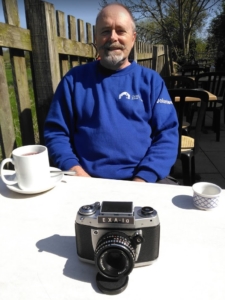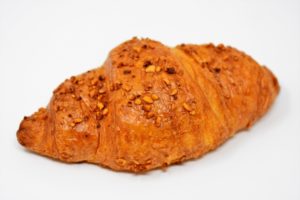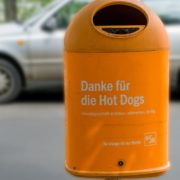HE Translations | Herb@HETranslations.uk | Call / WhatsApp: +44 (0) 7808 967196
| Cookie | Duration | Description |
|---|---|---|
| cookielawinfo-checkbox-advertisement | 1 year | Set by the GDPR Cookie Consent plugin, this cookie records the user consent for the cookies in the "Advertisement" category. |
| cookielawinfo-checkbox-analytics | 11 months | This cookie is set by GDPR Cookie Consent plugin. The cookie is used to store the user consent for the cookies in the category "Analytics". |
| cookielawinfo-checkbox-functional | 11 months | The cookie is set by GDPR cookie consent to record the user consent for the cookies in the category "Functional". |
| cookielawinfo-checkbox-necessary | 11 months | This cookie is set by GDPR Cookie Consent plugin. The cookies is used to store the user consent for the cookies in the category "Necessary". |
| cookielawinfo-checkbox-others | 11 months | This cookie is set by GDPR Cookie Consent plugin. The cookie is used to store the user consent for the cookies in the category "Other. |
| cookielawinfo-checkbox-performance | 11 months | This cookie is set by GDPR Cookie Consent plugin. The cookie is used to store the user consent for the cookies in the category "Performance". |
| CookieLawInfoConsent | 1 year | CookieYes sets this cookie to record the default button state of the corresponding category and the status of CCPA. It works only in coordination with the primary cookie. |
| PHPSESSID | session | This cookie is native to PHP applications. The cookie stores and identifies a user's unique session ID to manage user sessions on the website. The cookie is a session cookie and will be deleted when all the browser windows are closed. |
| viewed_cookie_policy | 11 months | The cookie is set by the GDPR Cookie Consent plugin and is used to store whether or not user has consented to the use of cookies. It does not store any personal data. |
| Cookie | Duration | Description |
|---|---|---|
| _ga | 1 year 1 month 4 days | Google Analytics sets this cookie to calculate visitor, session and campaign data and track site usage for the site's analytics report. The cookie stores information anonymously and assigns a randomly generated number to recognise unique visitors. |
| _ga_* | 1 year 1 month 4 days | Google Analytics sets this cookie to store and count page views. |
| CONSENT | 2 years | YouTube sets this cookie via embedded YouTube videos and registers anonymous statistical data. |
| Cookie | Duration | Description |
|---|---|---|
| guest_id | 1 year 1 month | Twitter sets this cookie to identify and track the website visitor. It registers if a user is signed in to the Twitter platform and collects information about ad preferences. |
| VISITOR_INFO1_LIVE | 6 months | YouTube sets this cookie to measure bandwidth, determining whether the user gets the new or old player interface. |
| YSC | session | Youtube sets this cookie to track the views of embedded videos on Youtube pages. |
| yt-remote-connected-devices | never | YouTube sets this cookie to store the user's video preferences using embedded YouTube videos. |
| yt-remote-device-id | never | YouTube sets this cookie to store the user's video preferences using embedded YouTube videos. |
| Cookie | Duration | Description |
|---|---|---|
| VISITOR_PRIVACY_METADATA | 6 months | Description is currently not available. |

The Madhouse Effect out now – the book Trump doesn’t want you to read
/in Humour, News, Translation /by HE TranslationsThe Madhouse Effect: How climate change denial is threatening our planet, destroying our politics, and driving us crazy features an outstandingly authoritative text by award-winning climate scientist Michael E. Mann and contains cartoons by prize-winning USA political cartoonist Tom Toles. It is ideally suited for both the layman and general reader struggling to see through the haze of misinformation on these vital issues. In an article titled Burning Down The House, the Washington Monthly named this “The book Donald Trump does not want you to read.”
Continue reading full article…
Klimaknallkopf of Kallstadt
/in Translation /by HE TranslationsIn einem 2016 von der Deutschen Welle veröffentlichten Artikel unter der Überschrift Donald Trump’s German roots hieß es: The ancestors of the “anti-immigrant” crusader Donald Trump come from a small village in western Germany. The documentary film “Kings of Kallstadt” explores the modest roots of the family’s real estate empire.
In einem Welt-Artikel vom August 2015 stand zu lesen, dass man dem “schrillen Milliardär” in Kallstadt, dem Heimatdorf von Trumps Großeltern, auch nach seinen umstrittenen Auftritten die Stange hält. Als eine Art ‘Entschuldigung’ für Trumps Auftreten galt: “Er macht halt Brulljes “, und es war durchaus auch von einer Art Bewunderung die Rede: “Der hot was druff “.Continue reading full article…
German film cameras
/in News, Technical /by HE TranslationsReport from HE Translations marketing representative Mike Gayler
First let me say that I am no expert in this field – I have a modest collection of analogue cameras, most of which are European, manufactured during the period 1955 – 1975. They are generally the sort of camera that a family man (and it usually was the man) would have taken on holiday and to weddings, or a camera that would have been proudly sported by the enthusiastic, albeit cash-poor, amateur photographer.
There’s a list of technical resources at the end of this piece; if I’ve used something from your site and not listed it, then please let me know and I’ll edit and credit you. Otherwise all errors are mine.Continue reading full article…
Nicht ärgern, nur wundern
/in Images, Language /by HE TranslationsPersonal note: The drawing was produced in 1944 by Herbert’s uncle, Bruno Gutfleisch, who sadly passed away in 1971. It hangs in Herbert’s office and helps him keep calm (and indeed carry on) in stressful translation situations 😇
Extreme Ironing / Extrembügeln
/in Deutsch, Humour, Language, Translation /by HE TranslationsAs evidenced by the photo below from August 2014, our visitors from Germany took their ironing duties quite seriously, in the knowledge that Extreme Ironing was in fact invented in Leicester. Needless to say, we have the book, as shown on the table in the photo.
Extreme ironing has not yet translated into a professional sport sponsored by manufacturers of irons or ironing boards, although the German language once again demonstrates efficiency by condensing the translation of extreme ironing down to just one word, albeit a compound word.
For further edification see the fascinating article under the heading The Finely Pressed, Death-Defying World of Extreme Ironing.
Deutsche Infos zum Extrembügeln gibt es auf Wikipedia.
Vorerst ausschließen?
/in Deutsch, Language, News, Translation /by HE TranslationsDas Drama, das sich gestern Abend in Leicester abspielte, wirft auch linguistische Fragen auf. Laut Tagesschau schloss die Polizei “einen Terroranschlag vorerst aus“, was einem in Deutschland ansässigen HE Translations Teammitglied zu denken gab. Zitat:
Der “schwachsinnige” Ausdruck vorerst ausschließen war uns bisher noch gar nicht so recht aufgefallen. Er scheint in der Tat auf deutschem Boden gewachsen zu sein, denn der entsprechende, offenbar mehr oder weniger offizielle englische Ausdrucksweise lautet:
Dass die Medien immer wieder negative Vorkommnisse in den Vordergrund stellen kann als recht deprimierend bzw. ärgerlich und wenig hilfreich angesehen werden. Dabei hätte es in den letzten Jahren so viel Positives aus Leicester zu berichten gegeben:
Fret – but not to worry
/in Language, Translation /by HE TranslationsToday we undertook another little linguistic research jaunt as a result of the Cornish weather and its sea mists.
An old friend from Yorkshire, (sadly no longer with us), always used the term sea fret when he was talking about the rather eerie and somewhat depressing sea mist on the north coast of Cornwall.
We assumed it to be a northern term, which indeed seems to be the case, with Oxford dictionaries giving the noun fret’s fourth definition as a Northern English term for a “mist coming in off the sea; a sea fog”, mid-19th century of unknown origin.
Continue reading full article…
Das Luxusproblem
/in Translation /by HE TranslationsOne of the key questions in Britain these days is: should croissants be curved or straight? Forget people on the breadline, the Brexit saga, the refugee crisis or Trump – in a move that can only be described as bold, Tesco decided to lift the burden of choice from customers by abandoning the traditional curved version. See Guardian article here. The French President was unavailable for comment.
According to the Oxford English Dictionary (OED), the English term for this kind of situation is First World problem, defined as: a cause of frustration or dissatisfaction regarded as trivial, and arising only as a result of the economic and social privilege, access to technology, etc., associated with the First World. An alternative term is luxury problem. Although the OED editors have so far been reluctant to include this term, it is listed in the popular Urban Dictionary. Perhaps it found its way into English as a verbatim translation of the German term Luxusproblem, which the Duden defines as: Problem, das gegenüber anderen, gewichtigeren als unbedeutend angesehen wird. Another meaning, in case you are wondering, is: Problem, das im Vorhandensein mehrerer guter Lösungsmöglichkeiten in einer besonders günstigen Gesamtsituation besteht.Continue reading full article…
Translating the Madhouse Effect into German
/in Language, Translation /by HE TranslationsWe are currently translating The Madhouse Effect, a popular and very readable illustrated book on climate change, by leading climate scientist Michael E Mann and cartoonist Tom Toles. The book, originally published in 2016, was motivated by the authors’ urgent desire to clear a fog of manufactured and self-interested climate scepticism around the greenhouse effect. The full original English language title is The Madhouse Effect: How Climate Change Denial is Threatening Our Planet, Destroying Our Politics, and Driving Us Crazy. The German translation is a collaboration between Herbert Eppel and project initiator Matthias Hüttmann.
So far the best working title for the German language translation has been Der Tollhaus-Effekt. The English word madhouse suggests a place of chaos, lunacy and foolishness, as well as clinical mental illness, but not fun or enjoyment. Tollhaus might suggest to an Anglophone a toll-taking station, such as in the book The Phantom Tollbooth, but the German adjective toll actually means “splendid” or “super!” The compound word Tollhaus can indeed describe a madhouse, both in the colloquial sense of a locus of lunacy, and in the technical sense of a mental hospital, but in the present day some businesses are using this word as a name for a themed safe play area or nightclub. That might sound a bit like the innocuous English term funhouse, so in this case the book’s cover illustration may ease the translator’s task by hinting at what sort of madness the book concerns.Continue reading full article…
Translating Trump: are you rising to the challenge?
/in Language, News, Translation /by HE TranslationsDonald Trump’s recent description of Caribbean and African countries as shitholes has crea ted a shitstorm in the translation world, with translators and censors struggling to find words to convey Trump’s meaning. The need for a German language translation of the term has seen the media popularise the term Drecksloch, a previously little used noun, which denotes literally a hole of, or for, muck. Technically Dreck does not exclusively refer to excrement, as it may also describe dirt, mud, rubbish, and manure. Interestingly, Drecksloch was previously recognised by dictionaries Dict.cc and Leo.org but not yet by the authoritative Duden.
ted a shitstorm in the translation world, with translators and censors struggling to find words to convey Trump’s meaning. The need for a German language translation of the term has seen the media popularise the term Drecksloch, a previously little used noun, which denotes literally a hole of, or for, muck. Technically Dreck does not exclusively refer to excrement, as it may also describe dirt, mud, rubbish, and manure. Interestingly, Drecksloch was previously recognised by dictionaries Dict.cc and Leo.org but not yet by the authoritative Duden.
Continue reading full article…